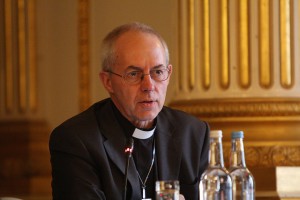After more than a thousand years of debate and confusion, the Archbishop of Canterbury Justin Welby revealed that the heads of the Catholic, Anglican, Coptic Orthodox and Greek Orthodox Churches are close to settling on a fixed date for Easter.
Welby made the announcement last week, at the end of a week-long gathering of Anglican Primates (the chief bishop or archbishop in each Anglican province) from around the world, saying, “The (Anglican) primates agreed this morning that we wish to join with Pope Tawadros in what looks like a promising chance of unifying and fixing the date on which Easter is celebrated by the global Church.
“At the moment most of us spend this part of the year saying ‘now when exactly is Easter this year’ and it varies from late April to mid March. Pope Tawadros has put forward the idea to churches in the Eastern tradition and the Western tradition that it be fixed somewhere around the second or third Sunday of April.
“We have agreed that we support that,” said Welby.

Anglican Archbishop Justin Welby. Credit: Foreign and Commonwealth Office | Flickr, CC License.
In May 2015, the Coptic Orthodox Pope Tawadros II wrote to the Catholic Pope’s representative in Egypt suggesting a common date for Easter.
The following month, as Pope Francis addressed a gathering of priests in Vatican City, he called the disunity on this issue a “scandal,” adding that, “we have to come to an agreement.” He later joked, “When did Christ rise from the dead? My Christ rose today, and yours next week,” the Catholic News Agency reported.
Christians have been attempting, on and off, to set a fixed date for Easter since the tenth century, and as this is not an issue of doctrinal significance, it is likely something that Christians can unite on.
The early church followed the Jewish (lunar) calendar, focusing on the crucifixion of Jesus, and closely connecting it with the Passover and what God was doing in Israel. According to tradition, Easter was celebrated on the 14th day of the moon following the Spring equinox, the day on which the Jews were commanded to sacrifice the lamb.
At the Council of Nicaea (a gathering of Christian bishops designed to debate and resolve issues pertaining to the church) in 325AD, the bishops decided that Easter should always be celebrated on a Sunday, and should not revolve around a particular phase of the moon. This decision was motivated by the Roman Empires use of the Julian calendar, which was intended to approximate the solar year (11 days longer than the Jewish calendar, and the basis of the modern Gregorian calendar on which much of the world operates today).
For example, in the Western church, Easter is the first Sunday following the paschal full moon, which falls after the northern hemisphere’s Spring equinox. This “full moon” doesn’t necessarily align with an astronomical event, but is instead the 14th day of a lunar month.
In 2016, the equinox falls on Sunday March 20, and the paschal full moon is Tuesday, March 22 (based on a lunar month starting on March 8), therefore Easter Sunday will fall on the following Sunday, March 27.
This year, Easter celebrations are separated by five weeks, with Western churches celebrating Easter Sunday on March 27, while Orthodox churches celebrating it on May 1. Jews will celebrate Passover between April 23-30.
While many churches adopted the conclusions of the Council of Nicaea, some notable churches abstained. The Orthodox Church of Antioch continued to follow the Jewish calendar, while in Alexandria it appears that Orthodox Christians held that Easter must necessarily be celebrated on the Sunday after the Spring equinox. Among other Christians who calculated the date of Easter for themselves, paying no attention to the Jews or the Romans, there was still considerable variations, thanks to divergent reckoning of the date of the equinox.
The formal split of the church into East and West in the 11th century cemented these divisions, though there were other reasons for the schism.
In the 20th century, an ecumenical movement sought to unify the various branches of the church around a common set of basic criteria, but at the end of the day, the East and West couldn’t agree on some significant theological differences.
Michael Gladwin, History lecturer at St. Marks National Theological Centre says, “I think [agreement on this issue] would have important symbolic importance. It would also reflect the increasing dialogue and ecumenical unity between Protestant, Orthodox and Roman Catholic Churches that has been happening since the groundbreaking Second Vatican Council (1962-65) of the Roman Catholic Church.”
If the heads of the major churches of the East and West can come together on a universal date for Easter, it would be the first time in a thousand years that both bodies have reconciled and stood united on an issue, and would mend one of the most noticeable rifts in the church.
Welby says, “I would expect (the change) between five and ten years time. I can’t imagine it would be earlier than that, not least because most people have probably printed their calendars for the next five years.”
If passed, the decision will also have implications for schools, businesses, and travel industries worldwide.
*Scott Harrower, of Ridley College in Melbourne, helped provide some of the background information for this article.
Email This Story
Why not send this to a friend?
